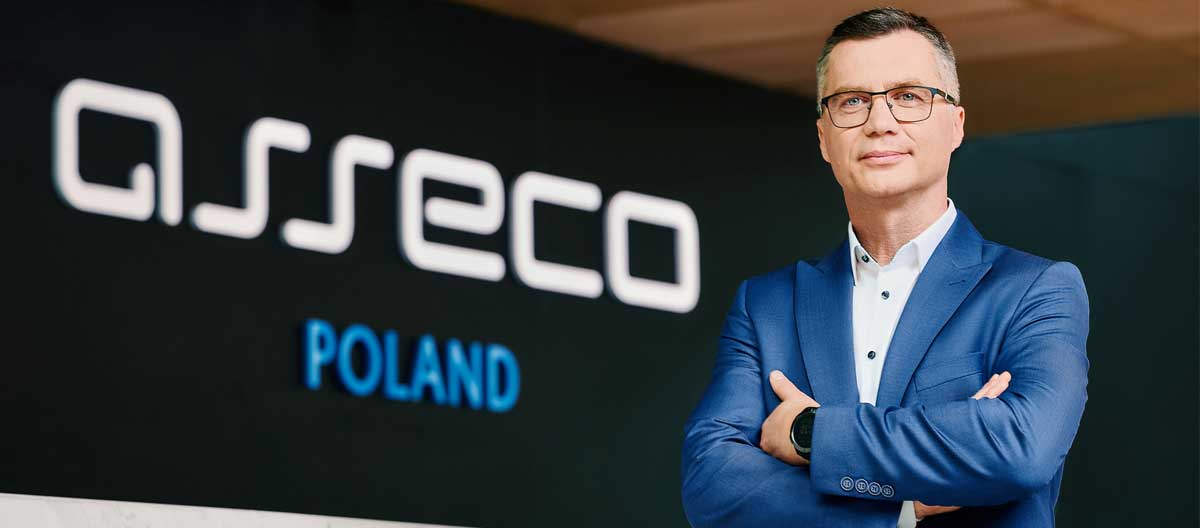Asseco and Aruba succeeded in cross-border European Qualified e-Delivery integration
May 14, 2025

Asseco Data Systems, develops advanced IT solutions for businesses, local governments, and higher education institutions, and specialises in security and trust service and Aruba S.p.A., the leading Italian provider of qualified e-delivery services, cloud services, data centres, hosting, email and domain registration, have entered into a strategic partnership announcing that they have successfully completed a test project (Proof of Concept- PoC), that will enable customers to exchange electronic delivery in the mode of qualified e-Delivery between Poland and Italy. This marks a pioneering initiative of its kind, offering an effective solution to the needs of companies conducting international business and citizens active in the digital ecosystem.
Asseco Data Systems and Aruba PEC have developed a cross-border cooperation model that enables a cross-border Qualified electronic Delivery (QeD) services between countries, despite different technical standards and, in the same time, is fully compliant with the eIDAS regulation of the European Union. This is a major step forward in the development of international interoperability of trust services.
"Thanks to the partnership between Asseco and Aruba, we have integrated two different national e-delivery standards – AS4 in Poland and REM in Italy. Importantly, this process has maintained full compliance with eIDAS both technically and legally. This allows for secure, verifiable exchange of documents and data between entities from different EU countries, which will translate into quick execution of business processes" – emphasises Artur Miękina, Director of Project Sales and e-Business Development, Asseco Data Systems.
"This collaboration proves that qualified electronic delivery can work securely and seamlessly across borders, even between different technical standards. This solution is not only a technical breakthrough—it’s a strategic investment in the competitiveness of EU enterprises and a pillar of digital compliance in Europe in order to have a communication standard between businesses, citizens and the public administration." – said Andrea Sassetti, CEO of Aruba PEC S.p.A. "For many of our nearly 10 million clients, Poland is an important market and the ability to exchange correspondence using e-Delivery is essential for running their business. As one of Europe’s leading trust service providers, Aruba PEC is proud to make a real investment in the continent’s digital future”.
Today, the majority of electronic business-to-business communication, primarily in the SME environment, is done through free and often non-European platforms that do not guarantee the identity of senders and recipients, nor offer data control. This poses significant risks in terms security, regulatory non-compliance, and technological dependence on third countries.
A Qualified e-Delivery system offers legal guarantees and benefits: it is the digital equivalent of a registered letter with acknowledgment of receipt. It allows for secure and legally binding electronic transmission of documents between public administration, companies, and citizens. With e-Delivery, the sender is assured that the delivery has reached the recipient, and both parties are unequivocally identified. It is a convenient, fast, and compliant solution that replaces traditional paper correspondence.
This technological evolution represents a real opportunity for the entire European ecosystem, from small and medium-sized businesses to large enterprises and Public Administration.
With this announcement, Aruba and Asseco intend to start working with European partners – from trust services providers to regulators - building joint international potential and providing integrated trust services to enable an EU-wide interoperable QeD network. As part of the cooperation, it is planned to introduce a combined offer for customers developed by the partners, which will cover various EU countries, enhancing existing solutions and strengthening Europe's position on technology sovereignty and data protection.




